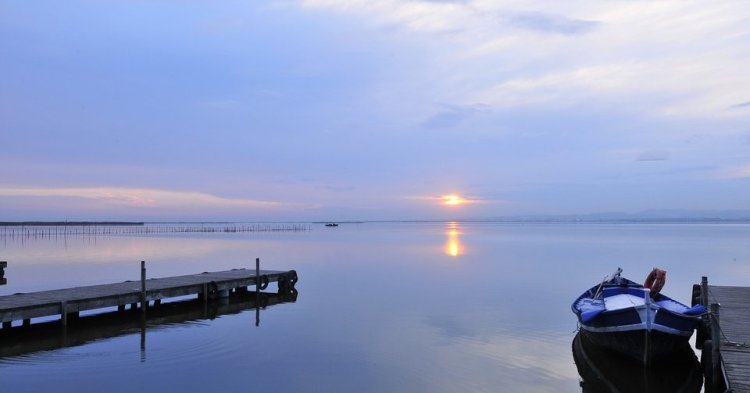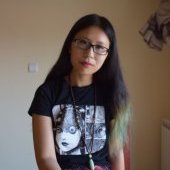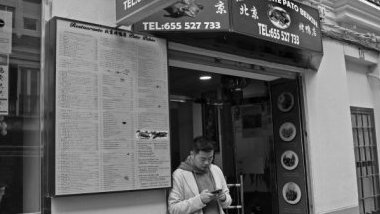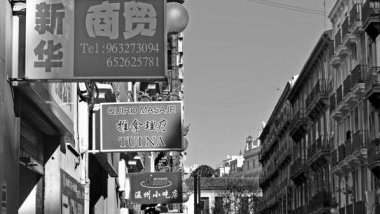Our author Paloma Chen reports on the Chinese diaspora in Spain. After part one and part two, she now shares her interview with Chenzhen H. about his experience as the son of Chinese immigrants.
Why did your parents immigrate and why did they choose Spain?
It’s definitely not a glamorous story for literary purposes. They migrated with the objective of improving their lives. The owner of a restaurant proposed moving to Spain to my father, who accepted in order to improve his economic conditions and to marry his then-girlfriend. But his boss exploited him and secretly tore the love letters he found apart, and not long after, said girlfriend married another man in China. Heart-broken, he couldn’t abandon Spain anymore, it was too late. He did go back to China to marry my mother in an arranged marriage but then took her back to Spain.
Sometimes I think that we forget that the term ‘migration’ is all too close to the word ‘promise’. To migrate doesn’t seem like such a free act when we consider that “choosing” this path is directly provoked by a promise: the promise of a better life, of restarting and leaving behind the trauma attached to your place of origin.
Do you perceive cultural differences with your parents, for example regarding general openness, feminism and sexual orientation?
Yes, but definitely not the same differences white parents may have with their children. In white families, there are intergenerational, political and ideological dynamics. In migrant families, migration and integration play an additional role.
My parents have not been socialised the same way as white parents. I’m not saying we should tolerate some of their reactionary or conservative attitudes, but we have to bear in mind that they have been raised on different terms.
I’m sure there are more white parents who debate about feminism than migrant parents. Maybe not about feminism as such, but about the term ‘feminism’ itself. We may talk about the same thing content-wise but approaches and tools are different when the discourse takes place elsewhere. My parents have talked about gender roles, sexuality, and politics – just not with Western or Eurocentric ideas. However, their priority remains to come to terms with their past trauma.
To what extent do you feel included in mass media and popular culture?
Really included... almost never. When I was a kid, I knew I was different – and I hated it. I admired Marvel superheroes, the Star Wars Jedi, and the worlds of Harry Potter and Lord of the Rings. Even though I was still too little to understand those dynamics, I asked myself why there were no superheroes like me, with East Asian appearance. My automatic answer was that I was inferior – I had to be white, act white, think white.
In Spain, the television programmes have contributed in a way. Depending on what was on, I was the Chinese guy of shows like El Barco or Supervivientes, or the classic ones like Jackie Chan or Bruce Lee. Well, I did enjoy kung fu films or even Kung Fu Panda. But one day at school I was suddenly told that some of my classmates were thinking that I was obsessed with kung fu. Now that I think about it, I am convinced that the problem is not excitement for kung fu, per se, but Hollywood representation.
The South Korean example is not any better. K-pop artists reinforce certain stereotypes. This image of “Asia” only applies to East Asia, however, and excludes the rest of the continent. According to this European imagery, Pakistan, India or Palestine are not in Asia anymore. Vietnam and the Philippines are still ignored, even though their diaspora across the world is huge.
Meanwhile, white people have extended and refined their tastes: they know about anime, independent filmmakers such as Wong Kar-wai or Sion Sono, and they even read classic prose or haikus. Sometimes these phenomena are a little overwhelming, because I think, “Damn, they know more things about that than me.” Besides, my family pressurises me for not studying Chinese thoroughly enough. So what does all that mean for people like me?
Do you think that in today’s world, it is relevant to ask yourself if you are Chinese or Spanish? Asian or European? Is nationality important as a part of the identity?
No. Focussing on being Chinese or Spanish means limiting identity to the notion of modern nation-states.
To begin with, Spain itself is very heterogeneous. When I was studying in Valencia, I learned a lot about sociolinguistics thanks to a Valencian language class. Historically, there has been a linguistic and cultural minimisation in a lot of areas of Spain. We can’t actually say that Galician is the same as ‘Spanish’, which itself is an ambiguous term as it could also mean to speak Andalusian, Catalan, Basque, or any other dialect or language spoken in the Spanish kingdom. But we all know that it, in fact, refers to Castilian.
Furthermore, the idea of Europe as a cultural identity has a long history of colonialism, orientalism, and differentiation. The European Union has developed similar dynamics to the North Atlantic alliance, militarised and legitimised in a very utilitarian way. Such an identity is problematic nowadays, as we were able to see with the rise of Eurosceptics – the idea of Europe has always been sustained by military alliances and treaties and has not actually offered anything to truly identify with.
Regarding feeling Asian, there should first be a clear notion of what Asia is. But there isn’t, beyond the utopian pan-Asian idea of Sun Yat-Sen or Japanese imperialists, both already outdated, or the rather undynamic ideas coming from the diaspora in the Anglo-Saxon world. To me, it’s also a mistake of some so-called Asian American activists to align their antiracism efforts with those of African Americans. We might well say we are of Asian descendent, but it’s, in fact, an appropriation to their pan-African ideas. There is, in fact, a lot of mutual distrust in Asia and I highly doubt that that is going to change soon.
About being Chinese, I have been told in Spain that calling myself ‘Chinese’ is derogatory towards my body. My view on being Chinese might be relevant socio-politically, but not in ethnic or nationalist terms. Another aspect is that my family roots are Chinese and therefore, I should embrace this inevitably. People with similar identity experiences have embraced words like ‘chiñol’ (= chino + español) because they consider themselves in-between the two sides. I think feeling like both or only one is either a little bit idealistic or assimilationist, respectively.





Follow the comments: |
|
